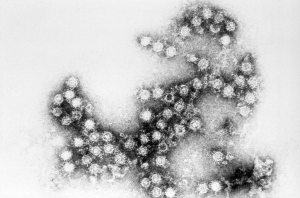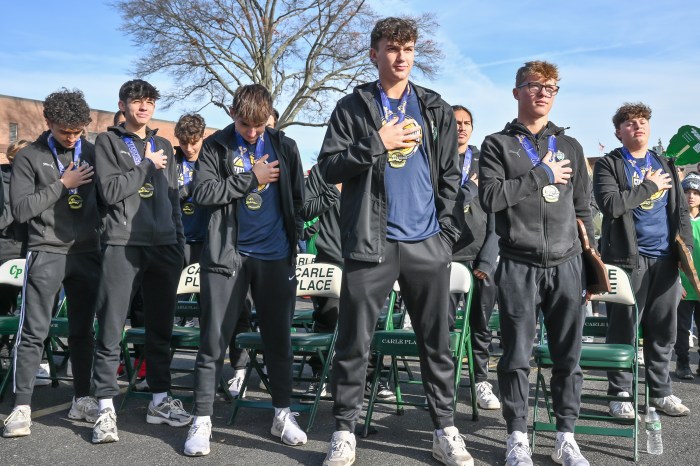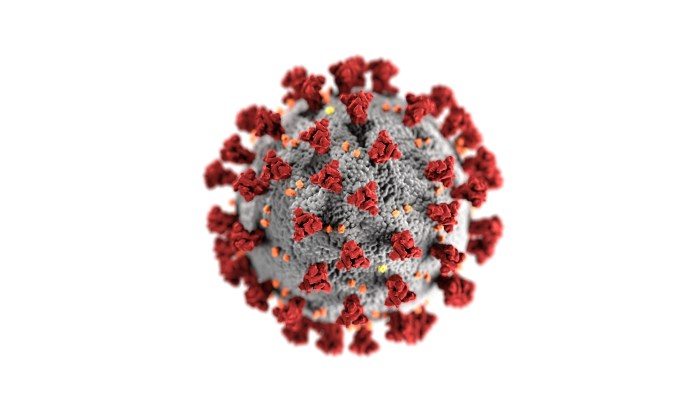Despite the national media attention about Ebola in recent weeks, there is one virus that is actually affecting Long Islanders—enterovirus D68 (EV-D68). One of the first cases was identified in North Hempstead on Sept. 18 and a recent case on Oct. 15 in Suffolk County, led school officials to close the school as a health precaution.

Dr. Charles Schleien, chairman of the Department of Pediatrics at Cohen Children’s Medical Center, said that although the enterovirus is still active, cases are dwindling on Long Island. According to Schleien, approximately 500 cases have been reported this season of enterovirus, at Cohen’s Children Medical Center, with two to six patients being admitted per day.
“It’s [enterovirus] typically mild and parents should treat it like they would any other cold or viral infection in their child,” said Schleien.
The Westbury School District released a letter on its website about the virus in September, advising parents to remind their children to wash their hands often.
“The only defense is good personal hygiene,” said superintendent Dr. Mary Lagnado at the Oct. 16 Board of Education meeting. “No cases have been reported in Westbury, but the best prevention is good personal hygiene. I cannot stress that more.”
Westbury parent and Middle School PTSA Vice President Ren Zelaya, says he’s not too worried about the virus.
“Other than regular hygiene (washing hands, etc.) in my household we aren’t really taking any extraordinary precautions against this,” he said.
But not everyone is as laid back about it. Carle Place mom Lou Ann Bonomi says EV-D68 has definitely become a concern.
“I personally have been more strict than ever about hand washing. As parents, our children are our number one priority and health issues like these are certainly causing extra stess in our everyday lives,” she said.
Carle Place Superintendent Dave Flatley says there have been no cases in Carle Place and that the district is continuing on with its normal cleaning procedures.
“We always do our very best to keep the place as clean as possible. Should there be an increase in the percentage of kids absent, we might look at scrubbing down the cafeteria or something more carefully, but we haven’t seen that,” says Flatley.
Like Westbury and other districts, Carle Place officials are working to inform parents and children about good hygiene and health practices.
“We’re putting out advice about being careful to guard sneezes and coughs, and regular handwashsing,” Flatley said. “For a long time we valued kids being tough and coming to school, but now the feeling is if you’re not feeling well, you should stay home and get yourself well before you come to school.”
First identified in California in 1962, enterovirus D68 has not been commonly reported in the U.S. Enteroviruses have several strains, similar to flu viruses, and are transmitted through direct contact by someone or something already contaminated with the virus. Health officials say that there is no specific treatment for people with respiratory illness caused by EV-D68 other than management of symptoms. Mild symptoms of the illness may include fever, runny nose, sneezing, cough and body aches.
The enterovirus season should be over within the next couple of weeks, according to Peter Silver, M.D., chief of Pediatric Critical Care Medicine at Cohen Children’s Medical Center in New Hyde Park.
“The biggest reason why we had such a record-breaking month was because of the enterovirus outbreak that has been going on across the country and has been in the Northeast for the past several weeks. In September, we admitted 68 children with enterovirus,” said Silver.
While enterovirus D68 (EV-D68) is not life-threatening, it does cause difficulty breathing, especially for children with asthma, said Schleien.
Unless children are experiencing a medical emergency, he advises parents to bring children exhibiting symptoms of EV-D68 to their pediatrician or primary care physician rather than the emergency department.


























